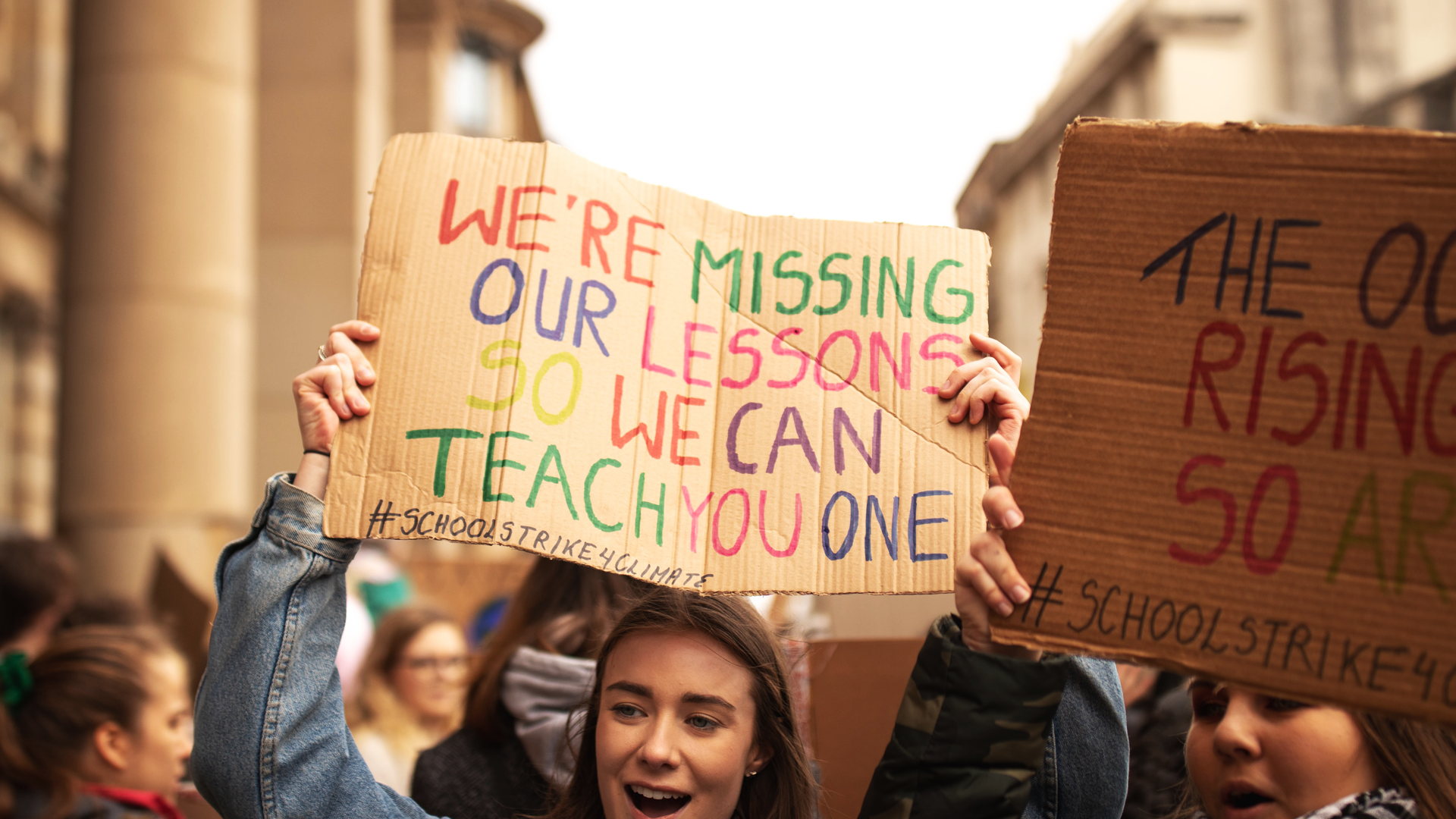The IPCC’s ‘code red for humanity’ and the pandemic have left us wondering: can we spare any time to be young?
‘Even though I’ve just entered my 20s, I look back and miss being young,’ says Vidushi Samarasinghe, a student based in Italy.
Samarasinghe is just one of the hundreds of thousands of Gen Zers who feel that their time to be spontaneous and carefree has run out. After this week’s landmark IPCC report revealed that Earth is to pass 1.5C warming by 2040, it certainly feels like humanity’s time to be reckless has passed.
A global Millennial and Gen-Z report by Deloitte highlighted the ‘sapped optimism’ that many have felt this past year, due to the pandemic and increasing weather extremes.
The report, which surveyed nearly 15,000 Millennials and over 8,000 Gen Zers between January and February, found that 43% of Gen Zers fear the environment has passed the point of no return.
Polly Drábová, a Dutch 22-year-old content and research marketer for Shop Like You Give a Damn, is truly worried we are running out of time on Earth. She suffers from eco-anxiety, which started when she took an interdisciplinary university course on the climate crisis.
‘Many people still believe somebody else will fix the problem or that it is the responsibility of future generations,’ she says. But soon, we’ll be witnessing horrific scenarios, and it’ll be too late, she adds.
‘Way too often, the conversation is about ‘saving our planet’,’ she says. When really, ‘it will be us who will need saving.’
She knows that it can feel easier to be young and reckless. Yet ‘choosing to follow a vegan diet and purchase from sustainable clothing brands’ since her teenage years is a ‘better and more satisfying feeling’.
Does Drábová miss feeling like she can be young? ‘If being young is equated to not caring for our future, then I’ve never needed to live that way.’
The 22-year-old surrounds herself with eco-conscious people that empower her to feel like she’s an active part of the solution, which helps her deal with her anxiety.
‘As long as we are trying to change the direction we’re going in, there’s hope for the best years of our lives being ahead of us,’ she adds.
Drábová doesn’t think that Gen-Z is alone in feeling the drastic weight of the climate crisis on its shoulders. Although her parents had a more secure future for their children, ‘making sacrifices for the common good isn’t about someone’s age’ — it’s about their ‘receptiveness’.
Millennials Anthony Collias and Jacob Wedderburn-Day, co-founders of Treepoints and producers of a podcast show, The Morality of Everyday Things, believe the only way to achieve successful solutions is to align them with people’s incentives.
‘A great solution is meat alternatives,’ says Collias. ‘After decades of people campaigning for plant-based products through guilt and health benefits, we saw mass-market solutions come in, and tonnes of people suddenly reduced their meat intake.




















